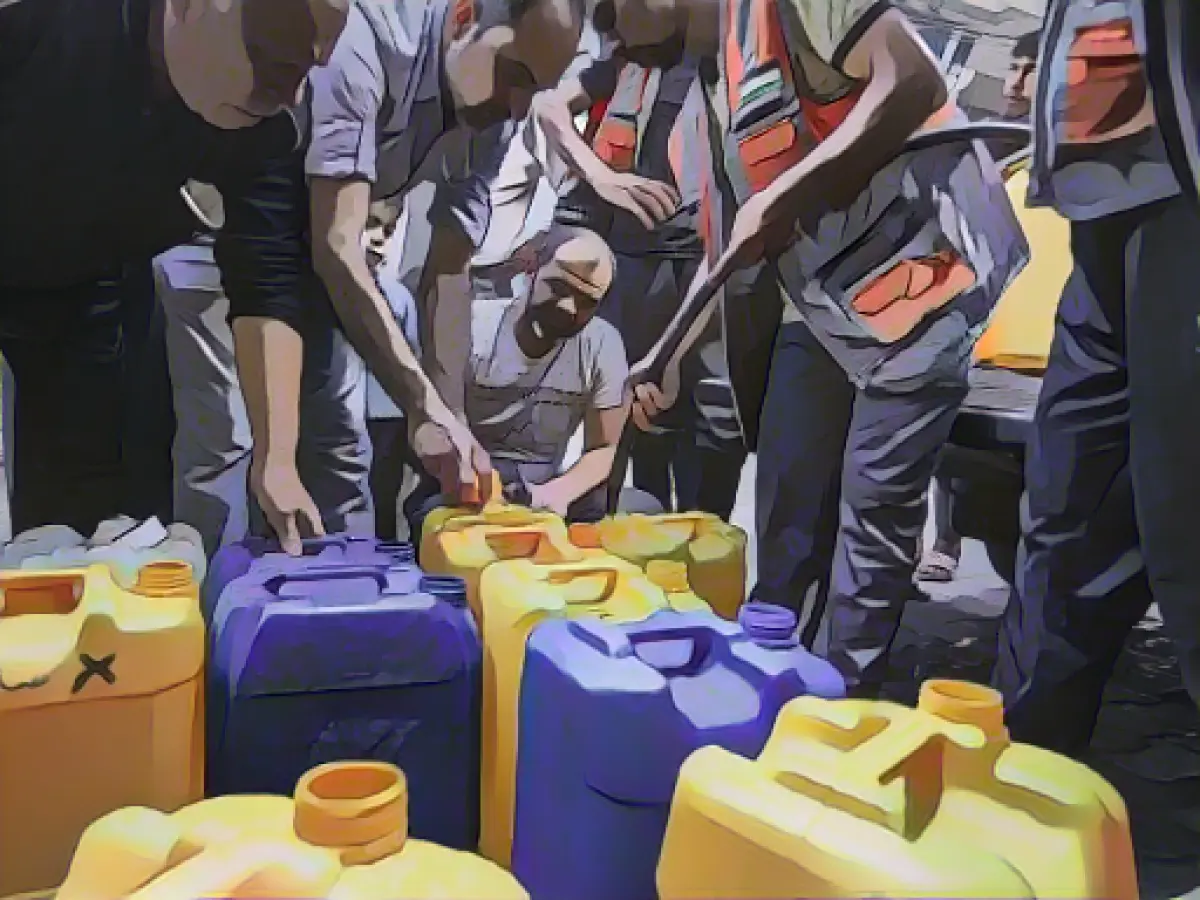Water Woes in Gaza: A Life-Threatening Crisis for Children
The water crunch in the Gaza Strip is escalating at an alarming pace, as per the United Nations Children's Fund (UNICEF). The risk of diseases spreading is skyrocketing daily, warns UNICEF spokesperson James Elder.
He delivered these insights to reporters in Geneva via a video link, speaking from Cairo. As per the World Health Organization (WHO), there are already thousands of cases of chickenpox, diarrhea, respiratory, and skin diseases reported. Surprisingly, there haven't been any cholera cases as the bacterium responsible for the disease is not present in the Gaza Strip.
UNICEF estimates that approximately 700,000 people continue to inhabit the north of Gaza, which Israel has been attempting to evacuate for several weeks now. These individuals are surviving on an average of 3 liters of water per day, whereas the minimum required for drinking, washing, and cooking is 15 liters.
Responding to the dire situation, UNICEF and WHO urgently require more fuel to operate desalination plants and water pumps, along with wastewater treatment facilities. Elder emphasized that whether the water and wastewater treatment is restored will ultimately decide whether "thousands or tens of thousands of children survive or die." UNICEF does not distinguish between children and adolescents, referring to all minors as children. As per Elder's figure, there are around 800,000 children among the over 1.7 million displaced individuals.
Elder also recalled the ongoing crisis, including more than 30 children and adolescents abducted by terrorists from Israel on October 7th.
Adding Perspective
The humanitarian situation in Gaza is further worsening due to ongoing conflicts. The dire need for clean water elevates this issue to a matter of human rights. The lack of water treatment facilities in Gaza, as a result of conflicts and resource constraints, has led to health complications such as waterborne diseases, including diarrhea and respiratory infections.
Addressing the water crisis and wastewater treatment becomes essential to ensure the health and survival of the affected children in Gaza.
Sources:








